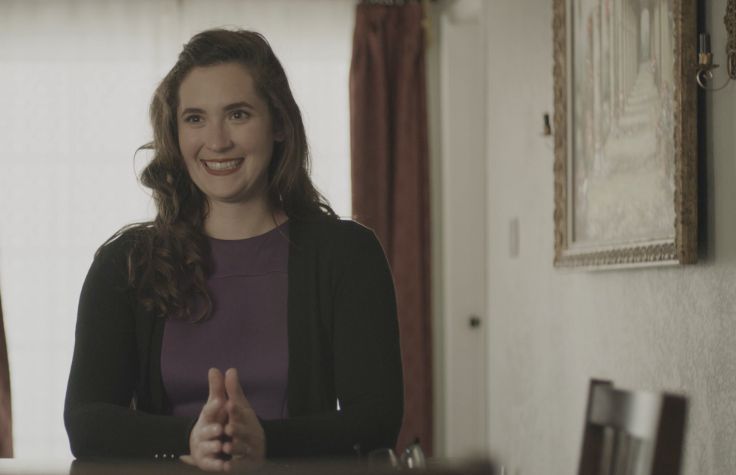
11 October 2022
As a scientist on Illumina’s Assay Research team in San Diego, Suzanne Rohrback works with colleagues to come up with new ways next-generation sequencing (NGS) can maximize insights from a sample—such as cells from a tumor or a tube of blood—extracting as much information about it as possible, as efficiently as possible.
Specifically, Rohrback’s role is in bioinformatics; she works closely with her coworkers who perform experiments, turning their hypotheses into code and graphs that build a deep understanding of the system at hand. As she puts it: “I’m a data detective! I’m always asking, ‘What’s different between these samples and why did it change?’ Answering this teaches us how biology works and identifies warning signals that could help doctors and scientists understand, diagnose, or treat disease.”
Rohrback was an early member of the team that developed the Illumina COVIDSeq™ Test, a high-throughput, sequencing-based, in vitro diagnostic workflow that enables the detection of SARS-CoV-2. “Everything went from zero to 60 in an instant,” she says. “I’ve never been so hyper-focused or felt so purposeful and connected to so many coworkers across the globe—many of whom I’d never met. It was an utterly brutal, chaotic, and gratifying experience all at once.” Thanks in part to her work on COVIDSeq, Illumina received the first FDA Emergency Use Authorization for a sequencing-based COVID-19 diagnostic test.
Another of her significant projects was developing a machine-learning model to classify cell-free RNA data from early-onset preeclampsia patients. “It’s very different from other RNA sequencing—there’s information about your whole body that is really powerful, but any differences are subtle and noisy,” she says. “I spent my first few years at Illumina developing custom tools to reliably identify alterations. I remember getting goose bumps when I realized these changes not only linked back to many aspects of the underlying biology of preeclampsia but also could be used to tell apart patients from an independent study. It was a huge accomplishment I will be proud of for the rest of my career.”
The COVIDSeq work notwithstanding, her projects are typically long term and can stretch on for years. “For cell-free RNA, I wrote thousands of lines of code to figure out how to look for patterns in the data, and then I started to build the model itself,” she says. “It was a trek. But every little turn can get you a slightly better view until you reach the top. Every little step adds up to the final product.”
Now in her fifth year at Illumina, Rohrback looks forward to solving more problems that will empower scientists and clinicians who use NGS. “I get to put my energy into creating tools that contribute to making the world a happier, healthier, and more inclusive place.”
Lightning Round
College major: Biochemistry
PhD: Biomedical sciences
Fun family factoid: “I’m a third-generation PhD.”
Hobbies: “I love to learn how to make things! I knit, crochet, macramé, and have started woodworking. I have a large garden and make wine from our fruit trees. I make my own hot sauce, stock, pasta, and bread. And I love to go hiking if the weekend isn’t too full.”
Secret talent: “Walking my cats on a leash.”
Cats: 2
Publications: 8
What you’ve learned about yourself while working at Illumina: “I recently started to take on project leader roles and almost immediately realized I am nothing without my team—and I find that extremely motivating. I have so much gratitude for getting to work with such talented and productive colleagues, and I love seeing how much we can accomplish when everyone comes together under a common purpose.”
How often you work in the office: “A few times a week. I love having the flexibility to choose which environment I need in order to be productive.”
Best office accessory: “Definitely the cat tree I built to go by my desk at home. Now I get feline company without having to sacrifice my keyboard.”
What you bought with your last bonus: “I used my most recent bonus to hire my wedding photographer.”
Interview tip: “I always ask scientist candidates to tell me about something that was hard to get working or a time when things didn’t go according to plan. Research is a journey, and sometimes you’re going to be wrong or run into problems. How you handle those situations tells me about who you are as a scientist.”
One piece of advice for people who want to work in this field: “Be open to new experiences, opportunities, and ideas. This field is young; there’s still a lot to discover. Great ideas can come from unexpected places, and adaptability keeps you in the conversation.”


